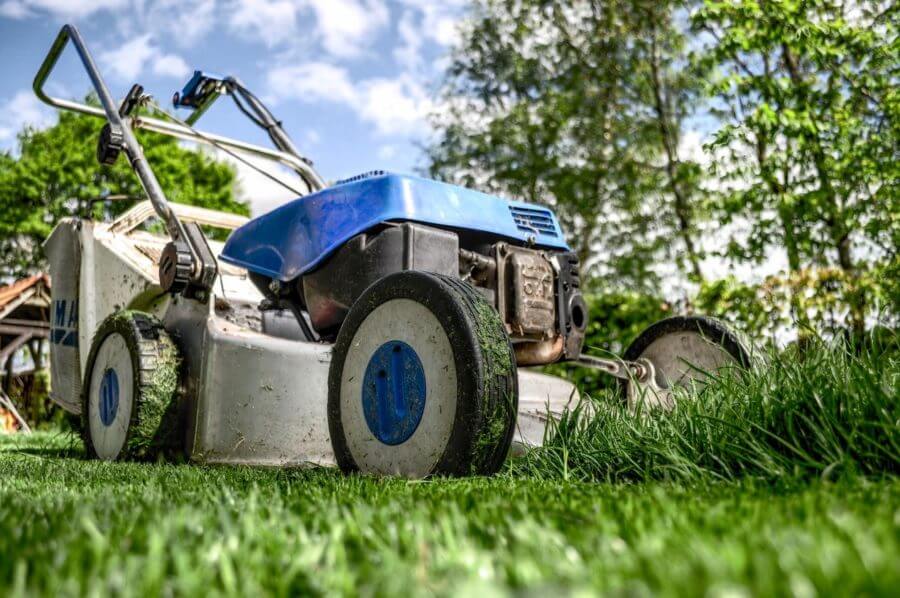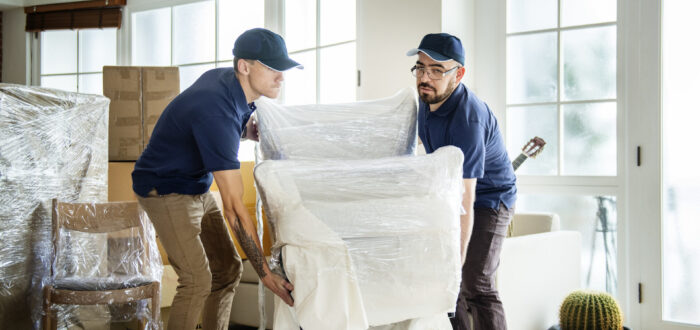

Items Movers Won’t Move – The Ultimate List
Posted in Moving Essentials on October 13, 2021
Even though different companies have different regulations, a list of common items movers won’t move is pretty universal. If you are in the process of moving across the country, you must be acquainted with it. That is, if you don’t want to go through each of your packed boxes on the relocation day to remove prohibited things. This list will show you the restrictions many cross-country movers have – just grab a pen and write it all down.
Professional movers generally won’t move items that are hazardous, illegal, or perishable. These items may include paint, propane tanks, fireworks, weapons and ammunition, pets, plants, food products like frozen meats, and other perishable materials. Also, consider that transporting animals and plants with professionals isn’t the best solution. Instead, plan the relocation ahead and make sure your furry friends and plants travel safely with you.
Know Which Items Movers Won’t Move Before You Start Packing
Learning which things can’t be loaded on the relocation truck shouldn’t take up more than a few minutes of your precious time. On the other hand, not doing it can bring you a lot more work and stress on the day of the move. It doesn’t matter if you go for the DIY approach to packing or decide to hire a professional relocation team. In both cases, you’ll end up with more trouble than needed on your relocation day if you don’t think about those belongings on time. So when organizing your move to another home and thinking about the household inventory list, don’t forget to check what should and shouldn’t be on it.
Some regulations can be pretty obvious, like in the case of flammables and pets. However, we guarantee that you’ll find some items on the following list that you wouldn’t have thought twice about. Did you know that some professional long-distance movers will move a piano and other bulky and tricky belongings but will not relocate nail polish? And they have a good reason not to! So keep your focus for the next couple of minutes and ensure that your relocation to a new state ends with unpacking, not starts with it.
Moving Hazardous Objects Is a Big No
The Federal Motor Carrier Safety Administration has prohibited the transport of any hazardous material when it comes to moving cross-country. That means that every item that is toxic, flammable, corrosive, and explosive can’t be transported interstate by relocation companies. Simply put, anything that can pose a danger to people and the environment is prohibited. Accordingly, ensure not to pack objects such as:
- Fireworks,
- Gasoline,
- Paint and paint thinner,
- Nail polish and nail polish removers,
- Matches,
- Alcohol,
- Aerosols,
- Ammonia,
- Acidic batteries and pool chemicals (corrosive materials that can dissolve different materials or even flesh).
You Shouldn’t Transport Hazardous Materials by Yourself, Either
If you think that it’s not such a big deal and that you can transport those dangerous objects and liquids yourself, stop. As we mentioned above, there is a good reason they are forbidden in the relocation industry. Don’t put your safety and the safety of others in danger just because some of those things can still be used. They wouldn’t be declared unsafe if they were not.
If you’re planning a big move-out cleaning, for example, use up all of your cleaning supplies. If not, leave them to your neighbors or get rid of them properly before moving. Because of the danger it represents, this kind of waste can’t be disposed of like others. Consider calling a waste management company and scheduling a pick-up or finding facilities where you can drop it off yourself.

Perishable Food Can Make a Mess Out of Everything
After the difficult topic of life-threatening belongings you keep in your home, it is time we move on to something we all love but can’t bring with us when moving to a new city – perishable food. Perishables have found a place on this infamous list because they can rot easily. And when they do, it creates a horrible odor that can get into your clothes and furniture. Also, rotten pieces can create mold, which can damage your belongings permanently or attract insects.
Imagine opening your boxes to that! Yuck! Relocation teams don’t want that either, which is why perishable food is on the list of non-transportable things. As for non-perishable food, it can be transported in relocation trucks, but we advise against it. There is no need to test your luck with cans of soup and jelly if you really don’t have to.
If you start planning a move to a new city on time, you can go through your fridge and come up with meals for days ahead. That way, not only will you find something to do with this type of prohibited stuff, but you’ll also probably save money to move. With most of your meals planned, there will be no need to go through expensive restaurants or order take out each day. On the other hand, if you don’t have enough time to consume all that you stored, donate the rest to those in need.

No Pets Are Allowed in the Back of Relocation Trucks
Even though we need to mention this restriction, it should come as a no-brainer. No matter how big or small, your furry friend is a living being and therefore can’t be observed as an item. So when moving with pets, you have two options. You can either bring your pet with you or hire a company that specializes in transporting animals. The second choice might come as a costlier one, but remember that transportation can be a traumatizing experience for pets. Hiring professional pet transport can be the best decision for your pet. These professionals will ensure that your friend is safe and completely taken care of during the whole process.
Remember to Take Care of Your Plants When Moving, Too
Pets are not the only forbidden living things. If you are getting cross-country moving services, know that many movers will not accept to relocate plants. There are several different reasons for this. Firstly, alongside plants, you can relocate pests and insects residing on them that can damage your belongings. Secondly, many species require special attention (a lot of sunshine, water, and so on) that movers can’t provide. In the end, it usually results in plants not making it to the destination alive. A professional relocation team just doesn’t want to be held responsible for something that is not their fault.
On top of that, remember that some states, such as California and Florida, have particular regulations about plants that can cross their borders. It would be best to contact the US Department of Agriculture and get information on whether your greenery is even allowed in your future state. If so, you’ll need some long-distance moving tips concerning packing and transporting it yourself. Watch the video below and discover hacks that may come in handy.
Keep All the Valuables With You
Some companies have a policy against transporting customers’ valuables. However, even when it’s not the case, it is always best not to do it. No company can guarantee with absolute certainty that nothing will happen to your belongings. After all, consider it a red light for relocation scams if someone is ensuring you of it. Instead of lying to you, companies can offer insurance. And with full value protection, in case something gets damaged, you’ll get either a replacement of the object or the sum that is equal to its value.
However, most of the valuable objects we possess are one-of-a-kind items with sentimental value. A number of them can’t be replaced with similar items or money. Think about photo albums, family heirlooms, unique works of art, and the like. There are many relocation hacks that can teach you to protect them, but they will all be based on the same piece of advice – keep your valuables safe by your side during travel.
Prepare a Bag With Essential Items
When preparing for movers, keep in mind that there are more valuables that need to be handled by you and no one else. Aside from jewelry and expensive antiques, you should also set aside keys, cash, documents, and necessary electronics. These valuables, alongside your change of clothes and toiletries, are considered relocation essentials. They will help you survive the trip and the first few days after the relocation to another home. Before getting packing services, remember to set them aside.
Necessary documentation demands special attention. Be especially careful with your paperwork, such as financial statements, certificates, or even medical records. They all contain your personal information that can be used for identity theft if you are not careful. Learn how to organize important documents and create a relocation binder for them and ensure to know where it is at all times.

Some Belongings Need Special Preparation Before Being Loaded in the Truck
Some objects are allowed to be moved, but only if they are prepared properly. For instance, all of your belongings that work on oil, gas, or any other flammables must be drained. Remember that lawnmower or chainsaw lying somewhere in the garage? If you want to relocate them to another home, ensure that their thanks are empty of any dangerous material. The same goes for the barbeque – remove the propane tank if you want to throw bbq parties in your new city.
Do you plan to relocate your vehicle? If you decide to get car shipping services to make your move to a new home easier, know that it needs to be appropriately prepared, too. So you are allowed to transport a car from state to state, know that your car tank cannot be more than one-quarter full.
Be careful with items such as the fridge and washing machine, too. They need to be completely dry before the mover loads them on the truck. If not, the humid environment can produce mold. And, as we mentioned earlier, it can irrevocably ruin some of your belongings. The night before the move, ensure that your fridge is empty and turned off. After you wipe the excess water away, leave the fridge open so that it can completely dry off at room temperature.

What Won’t Movers Move – Prohibited Things Can Depend on the Company
Restrictions regarding some of your belongings can be connected to different policies in different companies. That is the case with weapons and ammunition, for instance, or alcoholic beverages. So, when wondering what won’t movers move, it’s always a good idea to contact your company and get informed. Getting actual information instead of guessing can positively affect your anxiety about moving out and provide you with a more stress-free relocation. Make room for that one phone call on the relocation to-do list and be sure that you will not meet any troubles when the relocation day comes.
Contact our Cross-Country Movers and get the best quote on the market when moving across the country. We’ll provide you with all the needed information that will make the relocation planning a breeze and one of that info surely is what our experience crew can’t move. So, don’t wait any longer and get in touch with us today.
Frequently Asked Questions About Items Movers Won’t Move
What items are considered hazardous or dangerous for movers to handle?
Hazardous items that long-distance movers are often prohibited from handling include:
- Explosives and fireworks,
- Flammable liquids and gases (gasoline, and propane tanks),
- Toxic or hazardous chemicals (pesticides and corrosive),
- Infectious substances (medical waste),
- Illegal drugs and controlled substances,
- Ammunition and firearms,
- Perishable food items.
Can movers transport perishable items such as food?
Generally, movers do not transport perishable food items as they can spoil or go bad during transit, and the moving truck may not be equipped with proper storage facilities to maintain the food at the appropriate temperature.
What items are restricted by law from being moved by movers?
Some items are restricted by law and cannot be moved by movers. These may include:
- Hazardous materials and substances, as mentioned earlier,
- Illegal drugs and controlled substances,
- Stolen property,
- Live animals, except for household pets,
- Unregistered firearms,
- Lottery tickets,
- Cash and negotiable securities, such as stocks or bonds,
- Human remains.
Are there any items that movers refuse to move due to their value or sentimental worth?
Relocation crew may refuse to move certain items due to their high value or sentimental worth, as they may not be insured for their full value or there may be a risk of damage during transit. Such items may include irreplaceable or one-of-a-kind items, such as family heirlooms or antiques, artwork, sculptures, and other valuable collectibles, jewelry, gold, silver, and other precious metals
Can movers transport firearms or ammunition?
Firearms and ammunition are typically considered hazardous items and their transport may be regulated by law. Some moving companies may choose not to transport firearms or ammunition due to liability concerns, while others may agree to transport them but with specific restrictions and requirements in place.
Are there any items that are too large or heavy for movers to handle?
When long-distance moving, check with the relocation team if they can handle some of your bulky stuff. Some of them may refuse to move certain items that are too large or heavy (like pianos, gun safes, and hot tubs) for them to handle due to safety concerns, lack of proper equipment, or difficulty accessing the items.
Can movers transport plants?
Yes, relocation companies can transport plants, but there may be restrictions or requirements that need to be met, such as quarantine regulations or special packaging requirements. It’s important to check with the moving company for their specific policies and regulations on plant transport, as well as to research any state or federal regulations that may apply.
Can movers transport live animals?
The regulations and policies may vary from company to company. Some movers may require proof of vaccination and health, as well as proper containers or crates for the animals during transit. However, movers typically do not transport live animals other than household pets, such as livestock or exotic animals.
Are there any items that movers will not move due to insurance restrictions?
Yes, there are certain items that movers cannot move due to insurance restrictions. These include hazardous materials such as explosives, flammable liquids and gases, corrosive chemicals or poisons, compressed gas cylinders and aerosols, ammunition, firearms, and combustible materials.
How should one handle items that movers won't move?
f you have any of these items that need to be moved, you should either find a specialty mover who can move them or make other arrangements for transporting them yourself. You can usually find local companies who specialize in moving these types of items.






